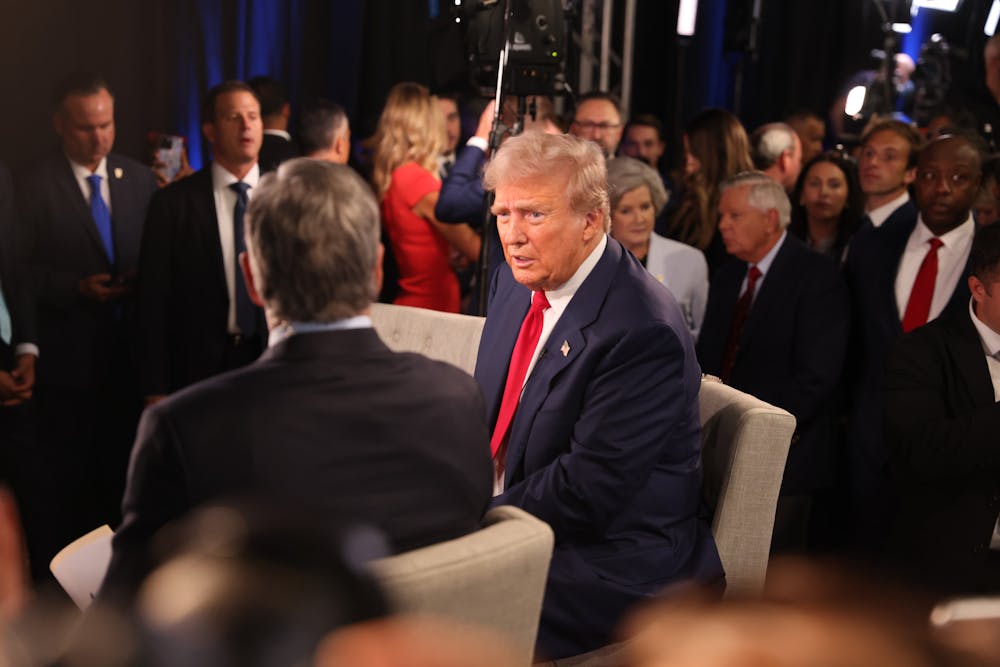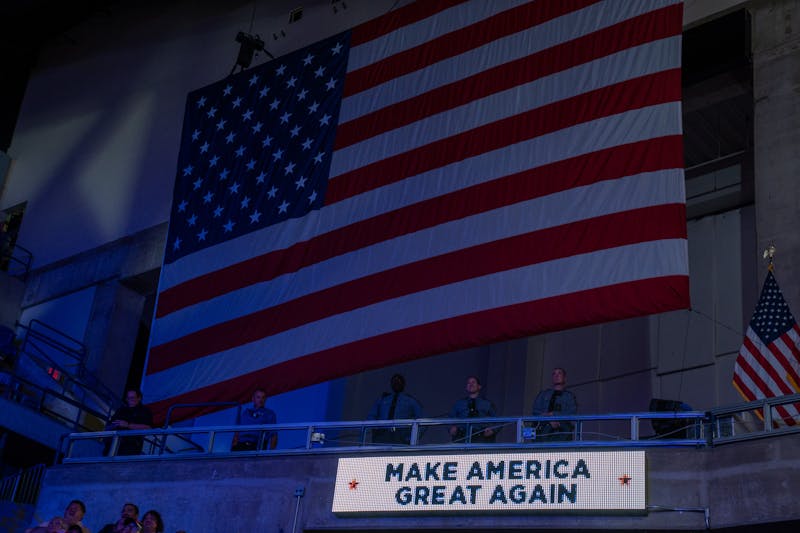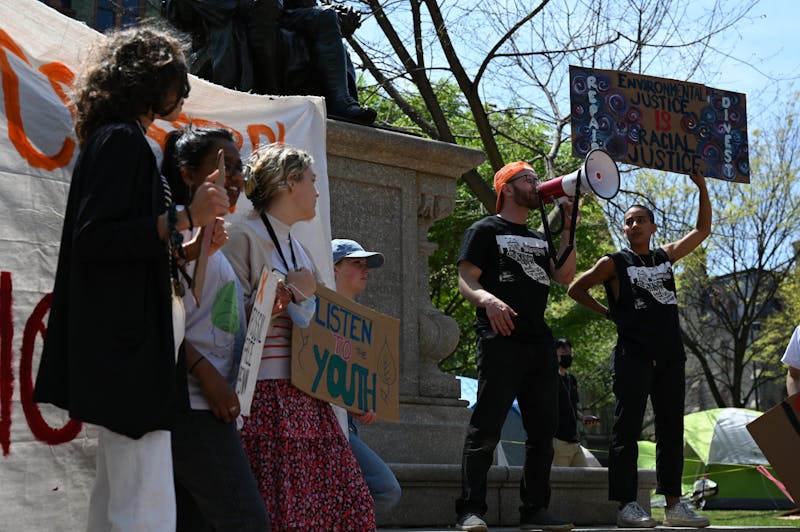
President and 1968 Wharton graduate Donald Trump signed an executive order attacking the practice of birthright citizenship on Jan. 20.
Trump's action — which was taken on his first day in office — threatened to end a 125 year principle and revoke citizenship status for the children of undocumented immigrants in the United States.
Following the executive order's announcement, immediate backlash erupted over its constitutionality and potential legal consequences. At the time of publication, 22 Democratic-led states have banded together to sue the Trump administration over the attack on birthright citizenship, with plaintiffs alleging that the President's action was unconstitutional.
“Presidents in this country have broad powers, but they are not kings,” New Jersey Attorney General Matthew Platkin told The Philadelphia Inquirer. “They do not have the power to unilaterally rewrite the Constitution."
Three separate federal judges will hold hearings this week to decide whether to block the order the executive order. On Jan. 23, a judge placed a temporary restraining order on the action that is set to expire this week.
As the legality of Trump's executive order remains unclear, The Daily Pennsylvanian spoke with Penn's legal experts and community members about the potential impacts of revoking birthright citizenship.
Penn Carey Law professor Fernando Chang-Muy — who teaches a course titled “Refugee Law and Policy" — said that “everything is up in air” following the executive order. Under the order, Chang-Muy explained, individuals born in the U.S. could lose their citizenship if neither parent was a U.S. citizen or lawful permanent resident, even if their mother was residing in the country legally.
Chang-Muy highlighted that immigration advocates have invoked the 14th Amendment, which includes a clause that has been interpreted for "over 100 [or] 200 years" to recognize the principle "that any person born in the U.S. is a citizen of the U.S."
He also emphasized the executive order’s "rather paternalistic" decision to place a greater emphasis on the father’s citizenship status when determining a child's status, which is a shift from the typical pattern of the mother’s status holding the greater weight.
Sociology professor Chenoa Flippen told the DP that while she is fearful of the effects that the new executive order could have if passed, she does not believe it is likely to take its full form.
“This is one of the most explosive and damaging things that [Trump has] done,” Flippen said. “My first impulse is that it seems impossible to me that he would be able to achieve this.”
She observed that the executive order was "very light on details," including "how [it] is going to be implemented." Flippen added that, "All that devil is in the details, and those details are nowhere to be seen."
“Obviously it's a huge signal. It’s a huge statement about who is and is not worthy of the rights of citizenship,” Flippen said. “The scariest part for me is it was just another example of how what was once a really fringe, really extremist kind of white nationalist idea is now a major part of a mainstream political party.”
College junior Ariana Borda, who works with Penn for Immigrant Rights, said that the proposal "sends a troubling message" about the "blatantly exclusionary and unwelcoming attitude of the current administration."
"It's just really disheartening to see because immigrants contribute so much to this country, economically, culturally, and socially," Borda said.
Borda highlighted that Penn's diverse student body is "tied to many students who come from immigrant families." The first few weeks of Trump's second term have prompted concern on campus relating to international students and their future at Penn.
“In terms of the future at Penn, we have a decent share of international students and that could be dramatically reduced in the future,” Flippen said. “Both directly, if [the government] creates fewer opportunities to enter, and also indirectly, as the U.S. gets a reputation for being inhospitable.”
While Borda said she thought the executive order was unlikely to hold, it was “disheartening to see everything happening so quickly," citing the President's decision to remove protected spaces — including hospitals and schools — from Immigration and Customs Enforcement raids.
“I would say it is going to be unfortunately a long four years,” Borda said.
The Daily Pennsylvanian is an independent, student-run newspaper. Please consider making a donation to support the coverage that shapes the University. Your generosity ensures a future of strong journalism at Penn.
Donate












